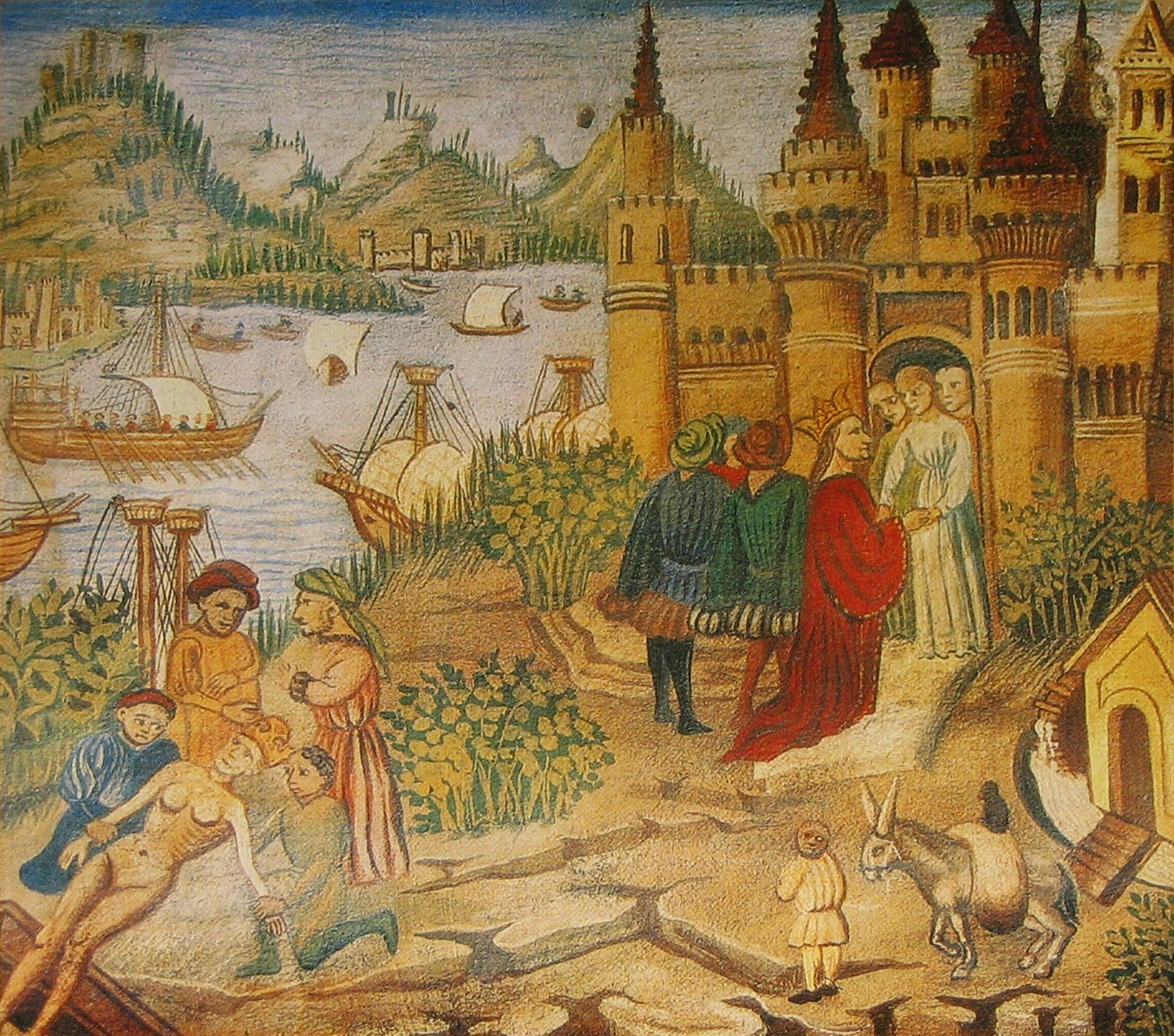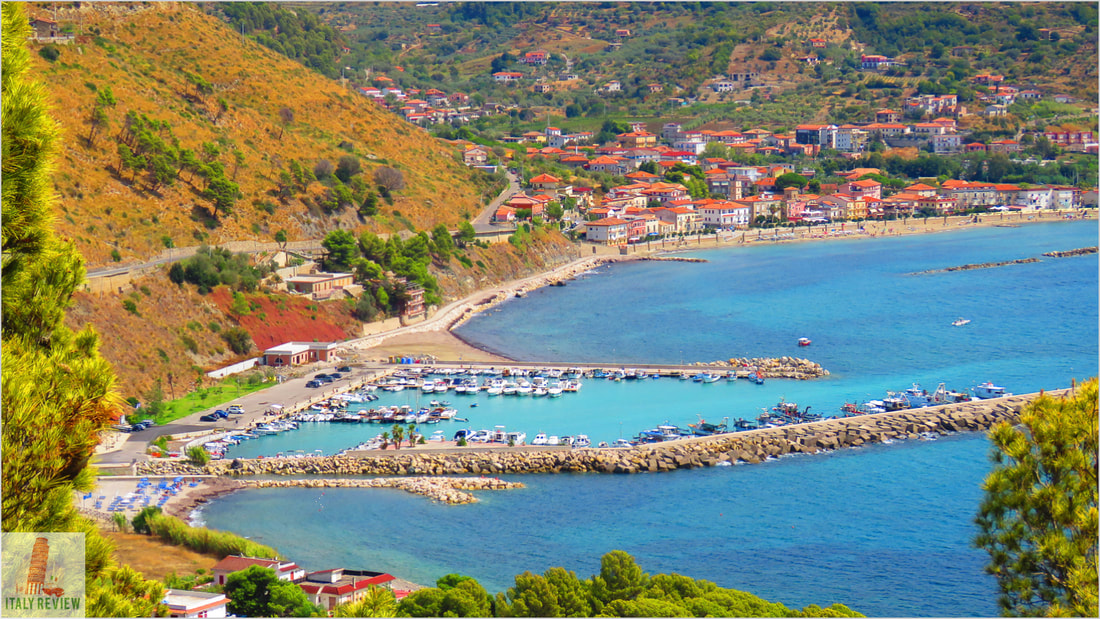Overview for This Week
- This page has important notes for the Canvas readings for today (10/17)
- We start our COVID-19 section next “class” (10/19), and those readings (and a video) are also on Canvas
- Even if you aren’t interested in medieval medicine, you might still be interested in Salerno and the rest of the Amalfi Coast. If so, you’re in luck that I’m leading a study abroad to Salerno, Italy, Summer 2023
- Intercultural Communication on the Amalfi Coast (6 credits)
- May 27, 2023-June 24, 2023
- Summer Study Abroad Fair (this program) is Tuesday, Nov. 15th
- Tuesday, November 15
- Student Union Lobby & Norm’s Gameroom
- Amalfi Coast Study Abroad 1
- Amalfi Coast Study Abroad 2
- Intercultural Communication on the Amalfi Coast (6 credits)
Coming Up
- On Monday (10/24), we’ll discuss COVID-19 rhetoric
- Next Wednesday (10/26), we start our Science Fiction section of the class
- H.G. Wells’s The Time Machine (1895) is available online
- By the way, tomorrow (10/18) is the 26th anniversary of the release of the film Swingers (1996)
- I highly recommend it–fun for the whole family!
Notes on Today’s Readings
Below are some key points for today’s readings. Our webpage today, Monday, and next Wednesday will all center on medicine and medical contexts–from medieval Europe to cutting-edge stuff during a pandemic.
Encyclopedia Britannica’s entry The University of Salerno
- “University of Salerno”
- Probably the first University in Europe with some historians claiming the founding date to be 802 CE
- The University of Bologna, also in Italy, is another school considered the oldest with a consensus that it was founded in 1088 AD, so it is the oldest consecutively run University in the world
- An extremely important medieval school recognized for its commitment to advancing knowledge of medicine
- In 1221, the Holy Roman emperor Frederick II decreed that only doctors who studied at the University could practice medicine
- As new schools, especially post-Renaissance, were founded, the University of Salerno gradually lost its prominence but didn’t close until 1811–that’s a thousand year run!
- There’s a museum to the school in Salerno today (opens in Google Maps)…hopefully they’ll start having tours again in Summer 2023

Hellenistic and Roman Medicine
- Hellenistic and Roman Medicine (read to “The spread of new learning”)
- Anytime you hear “Hellen-istic or –ism, it means Greek and usually ancient Greece
- Panhellenic is a term used for university Greek Life
- Aristotle laid the foundations for Western medicine
- After Alexander the Great conquered the known world, Alexandria, Egypt, became an intellectual center with The Great Library–a rather important Wonder of the World for the videogame Civilization (1991)
- Hippocrates (circa 460 – circa 370 BCE) is considered the “Father of Medicine,” and physicians to this day take the Hippocratic Oath to pledge to be ethical practitioners on medicine
- He had a funny idea about humors in the body lasted for centuries as medical “truth”
- These humors–blood, yellow bile, black bile, and phlegm–were thought to govern all bodily functions and even emotions.
- Asclepiades of Bithynia, a Greek who moved to Rome to practice medicine circa 100 BCE, used an assumption of atomic theory to restore balance to a sick body–differing from Hippocrates and Galen
- Asclepiades actually prescribed “massage, poultices [topical herbal remedies for sores], occasional tonics, fresh air, and corrective diet” as remedies for ailments
- The flourishing of medical knowledge of Ancient Greece and Rome was impressive and somewhat lost after the Fall of Rome
- For instance, Soranus of Ephesus is credited with developing a technique to turn a baby in a breech position (feet first) during birth to reduce the chance of death…this technique was lost until the 16th Century!
- After the Fall of Rome, seeking knowledge was discouraged but continued with European clergy and Arabic scholars
- Many physicians in the Arab world (Muslim, Christian, and Jewish) read translated Greek texts and advanced medicine
- These Arab scholars eventually established chemistry as a science (circa 800 CE), which greatly helped in preparing medicines
- In Medieval Times, “Salerno drew scholars from near and far.”
- It was a center of knowledge, bringing together techniques from around the known world and spurred new schools from its model
Article on the Philosopher/Physician Galen
- “Galen, Greek physician”
- Born 129 CE in what is modern-day Turkey, he studied Greek medicine
- After studying at Alexandria, he moved to Rome and was the physician to emperors
- He healed many wealthy patients, which was good for his reputation
- Gave public demonstrations of medicine
- Advocated dissection but had to use animals
- Used his rhetorical skills to advance his ideas in public debates
- In that time and up until around 1900, rhetorical knowledge was a key component of all knowledge making
“Schola Medica Salernitana”
- Marcum, James. “Schola Medica Salernitana and Medieval Medical Philosophy.” Hektoen International, vol. 4, no. 3. Summer 2012.
- Schola Medica Salernitana (2-min video that should provoke some discussion)
- The legends of its founding, while perhaps dubious, underscore the diversity of cultures that informed the University’s practice
- One legend has “four founders—Pontus, a Greek; Salernus, a Latin; Adela, an Arab; and Elinus, a Jew—each representing the various cultural influences on the school”
- Knowledge-seeking led to interactions among different peoples
- Another legend claims “Parmenides, a pre-Socratic philosopher who, in 540 BCE, founded a medical school…located on the coast eighty kilometers [about 50 miles] south of Salerno.”
- That distance would put it near San Nicola a Mare on the Amalfi Coast:

- “The school flourished from the tenth to twelfth centuries, reaching in the twelfth century its apogee of influence on medicine throughout the known world.”
- “Robert, the son of William the Conqueror (ca. 1028–1087 CE)….came to Salerno from the Crusades to have a fistula attended.”
- Crusaders went through Italy to and from attempts to regain the “holy land,” bringing knowledge and experience with them
Women at Schola Medica Salernitana
Marcum briefly mentions that women were admitted to the school, but another article (not required reading) provides more details, and I’ll put that below:
Enrico de Divitiis, Paolo Cappabianca, Oreste de Divitiis. “The ‘Schola Medica Salernitana’:
The Forerunner of the Modern University Medical Schools.” Neurosurgery 55:722-745, 2004.
DOI: 10.1227/01.NEU.0000139458.36781.31
Marcum’s Article
- p. 723: “With the fall of the Roman influence, an entire system of knowledge, along with its libraries and fundamental scientific concepts, was abolished.”
- p. 723: During the Middle Ages, people had a devotion to “a belief in superstition and magic”. When doctors couldn’t provide scientific answers for ailments, people distrusted them, which “led to universal* reaction against any scientific and rational approach to disease, driving the people away from science and reason.”
- “universal” seems bombastic…perhaps a “major” reaction or “prevailing” reaction seems more likely.
- p. 731: “[Women] were considered valuable practicing physicians and surgeons, whereas elsewhere, women held only a marginal social position and, in the medical field, were allowed only to be midwives, with no involvement in any other type of medical procedure.”
- p. 731: “Salerno was the only medical school in Europe that opened its doors to women. As we can see, these women were not midwives but rather actual physicians who practiced their profession without any sexual discrimination. The presence of women was not sporadic or episodic but rather an essential part of the Salerno medical system.”
Next Class
We’re going from old (medieval) medicine to contemporary medical knowledge. We’ll cover politicization of vaccines and the rhetoric around facial coverings during the early days of the pandemic. Take the time to do the COVID-19 readings on Canvas for the next two classes (10/19 & 10/24). Then, we start our science fiction section next Wednesday (10/26).
Don’t forget to do the Weekly Canvas post before 11:00pm on Friday, 10/21.